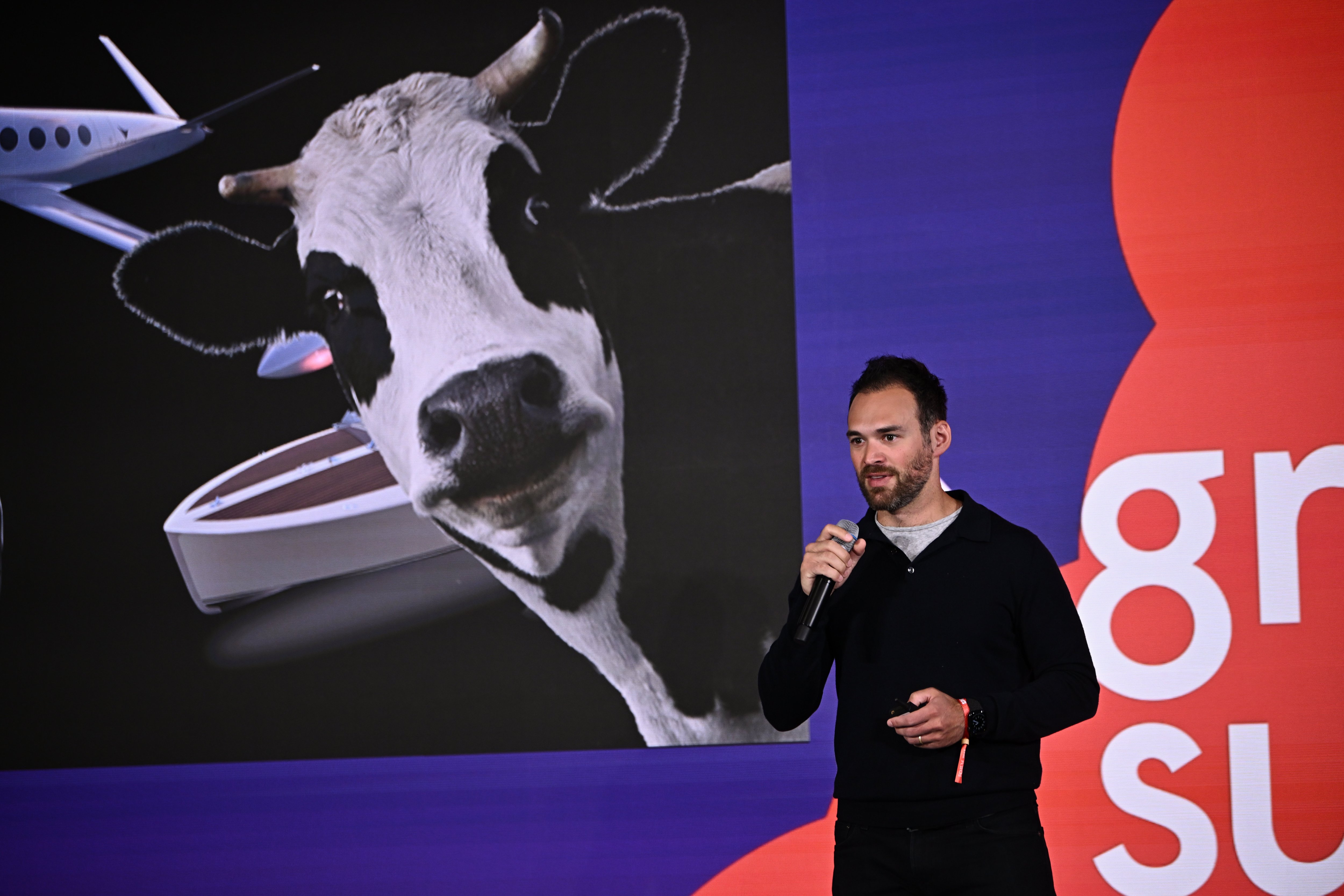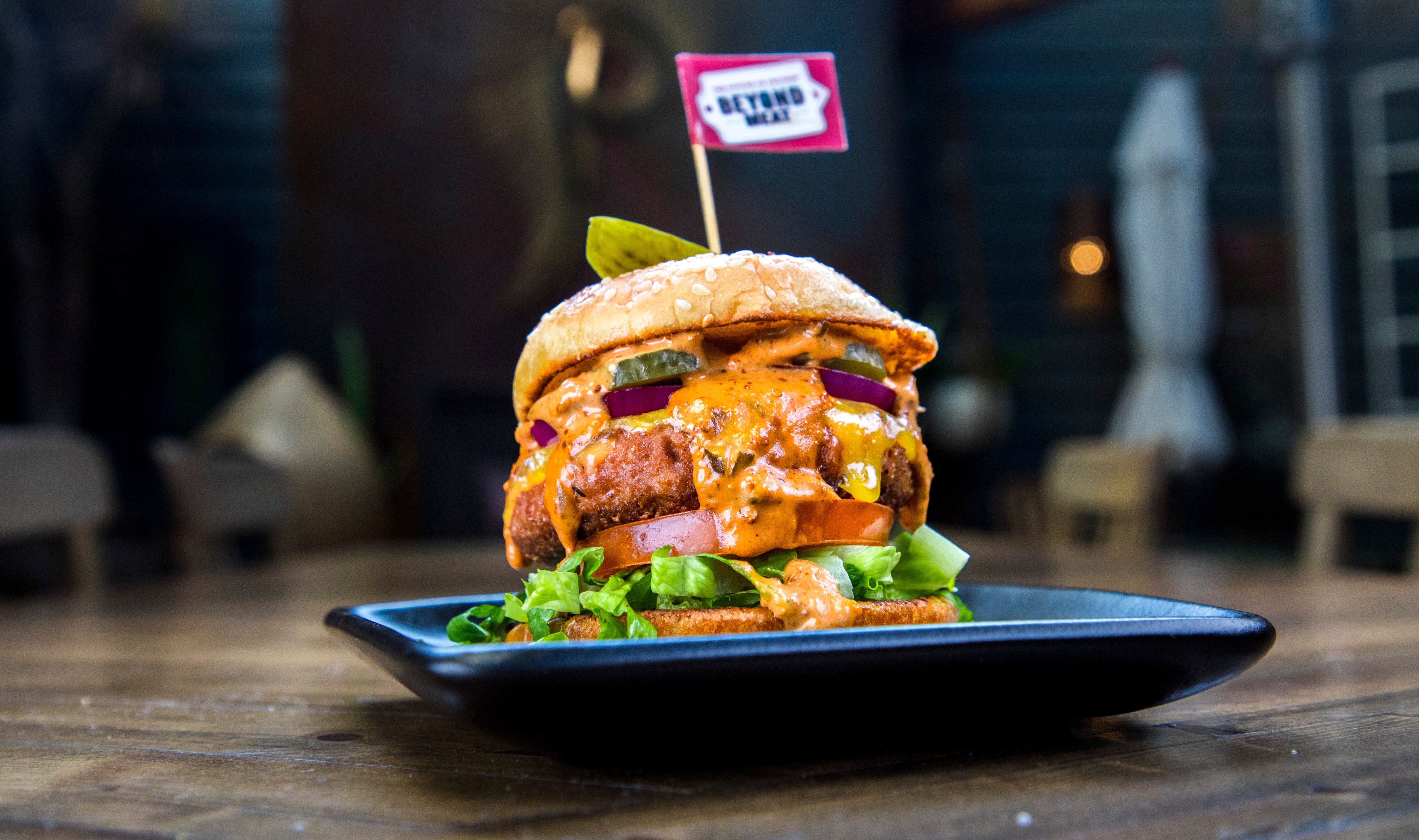Lab-grown meat promised a brave new world. What went wrong?
When the time came to shut down his lab-grown meat start-up for good, British entrepreneur Joshua March took his team out for a farewell lunch. Pointedly, they did not opt for the company’s burgers, which are brewed in a steel vat. “You know, I think we’d had enough of our own burgers,” March said.
After more than five years, $40 million (£30 million) in venture capital funding and many, many taste tests, SciFi Foods, their Hayward, California firm, closed its doors in June.
Potentially, March reckons, SciFi may soon be joined by dozens of other start-ups that, only a few years ago, were being showered with billions of dollars by investors amid predictions that “cultivated meat” factories would replace slaughterhouses and lighten the load that large-scale livestock has on the planet. How times change.
“I wouldn’t be surprised if none of the current crop of companies are able to make it,” March said. “The alternative meat market has been decimated.” More than 80 companies — growing everything from lab-grown tuna to beef to chicken, and duck to salmon — have been funded in the past five years. Now, however, once high flyers are struggling. Upside Foods, which reeled in $600 million from investors including Bill Gates and Sir Richard Branson, last year won landmark approval to become the first company to sell cultivated chicken breast in America. But a partnership with a high-end San Francisco restaurant ended after just a few months, and it has since been through two rounds of layoffs and paused the building of a large factory in Chicago. Nine years on from its founding, it does not have any products on the market.

So what has happened to the brave new world promised by the industry? SciFi’s core science for lab-grown meat is broadly similar to that of the rest of the sector. From a single cow biopsy, stem cells are extracted. These are put in a petri dish with a broth of nutrients that help the cells divide and grow. This concoction is then moved to a bioreactor with a batch of minerals, sugars, hormones and growth factors — and eventually becomes meat.
From the cells in the original biopsy, thousands or even millions of tonnes of “meat” can be cultivated. More than a third of the planet’s arable land is dedicated to growing food for livestock animals that are often raised in horrendous conditions before being slaughtered for consumption. Cultivated meat offered a climate and animal-friendly alternative for meat lovers. A key obstacle, however, has been price.
SciFi’s first prototype beef patty in 2020 cost $20,000. By the time the company closed, it had brought the price down to $15. That is still multiples of the going rate for mince meat, but March reckoned that SciFi was on track to reach price parity within three years.
Amid that progress, the world changed dramatically. Enthusiasm for meat alternatives soured. Beyond Meat, a maker of plant-based sausages and burgers, floated in 2019 to great fanfare — only to lose 96 per cent of its market value as sales plunged and worries grew about the health impact of its sodium-rich, heavily processed pea protein-based products.
Cultured meat was tarred with that same brush, despite still not having any products for sale. “The challenges in the plant-based meat market drastically increased the perceived market risk of a cultivated-meat product from an investment perspective,” March said. “In consumers’ minds, suddenly it’s a product that’s worse for you, tastes worse and is more expensive.”

The industry was also drawn into the culture wars. In May, Florida outlawed lab-grown meat. Governor Ron DeSantis pitched the prohibition as a way to fight back “against the global elite’s plan to force the world to eat meat grown in a petri dish or bugs to achieve their authoritarian goals”. Alabama followed suit; Italy banned it last year. Ten American states, meanwhile, have passed label laws that require companies to make it clear when meat is lab-grown and not from an animal.
Jim Mellon, the Scottish billionaire, is not so pessimistic. His London-listed Agronomics, an investment company specialising in “cellular agriculture”, has participated in six of the seven largest financings in the sector in the past year. “People are still raising money, if you’ve got a good enough story,” he said.
Mellon pointed to Mosa Meat, a Dutch company set up by the industry’s founding father, Mark Post, who created the first lab-grown burger in 2013. It raised €40 million (£34 million) in April. Prolific Machines, a California start-up pioneering a technology that uses light to stimulate cell growth, raised $55 million in June.
What is occurring, however, is a brutal shakeout where only a select few start-ups can secure the funding they need. Indeed, accountants say Agronomics’ portfolio of stakes in private companies should give it a market value of 18p per share, but that price has plunged to 5.5p; its shares stood at 28p three years ago. “The discount is absolutely vast. I can’t explain it,” Mellon said. “Having been around for a very long time in this business, I think that ultimately — as there are exits and companies are acquired for their intellectual property and so forth — the cycle will turn again.”
That may happen. The question is: how many companies will be left standing when it does?






